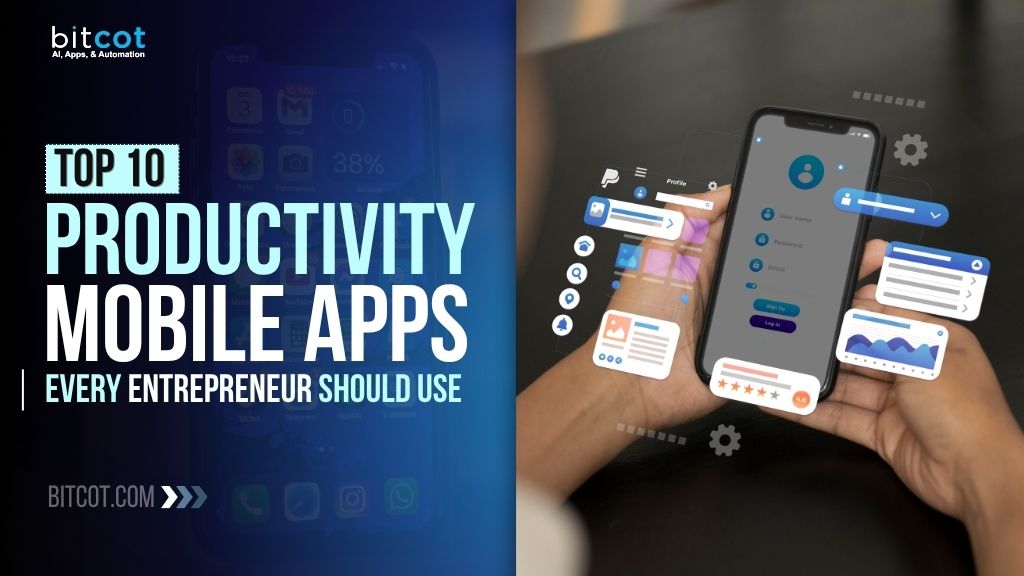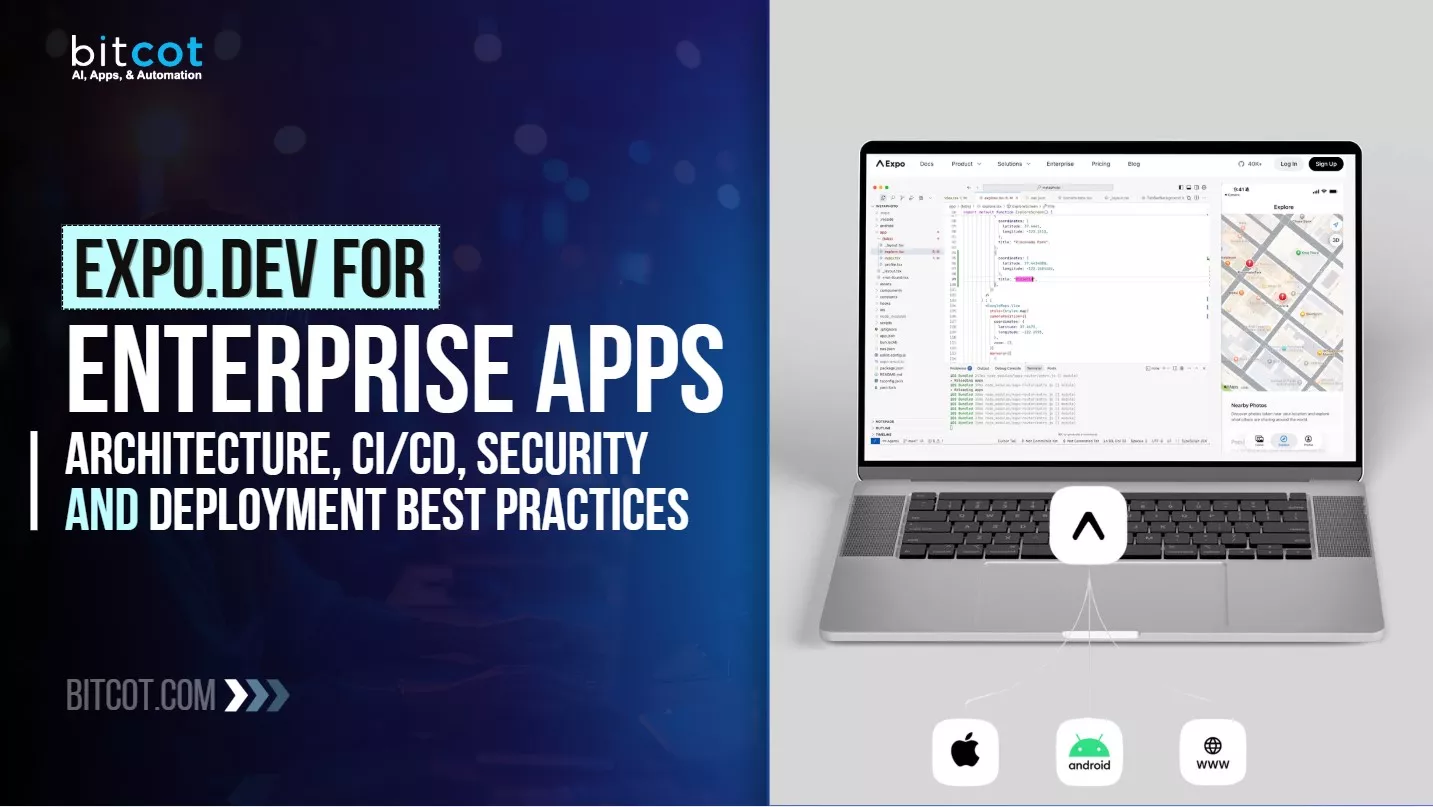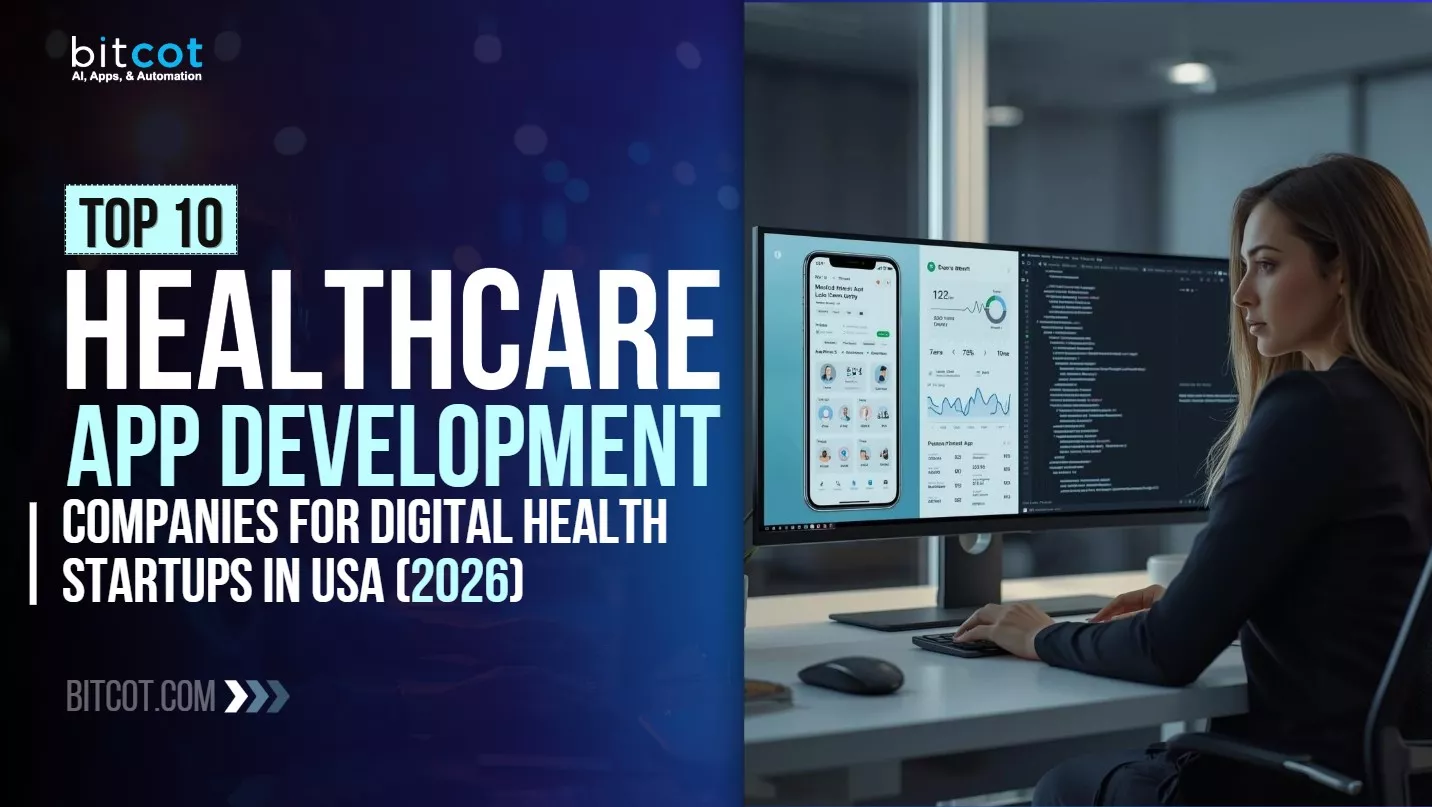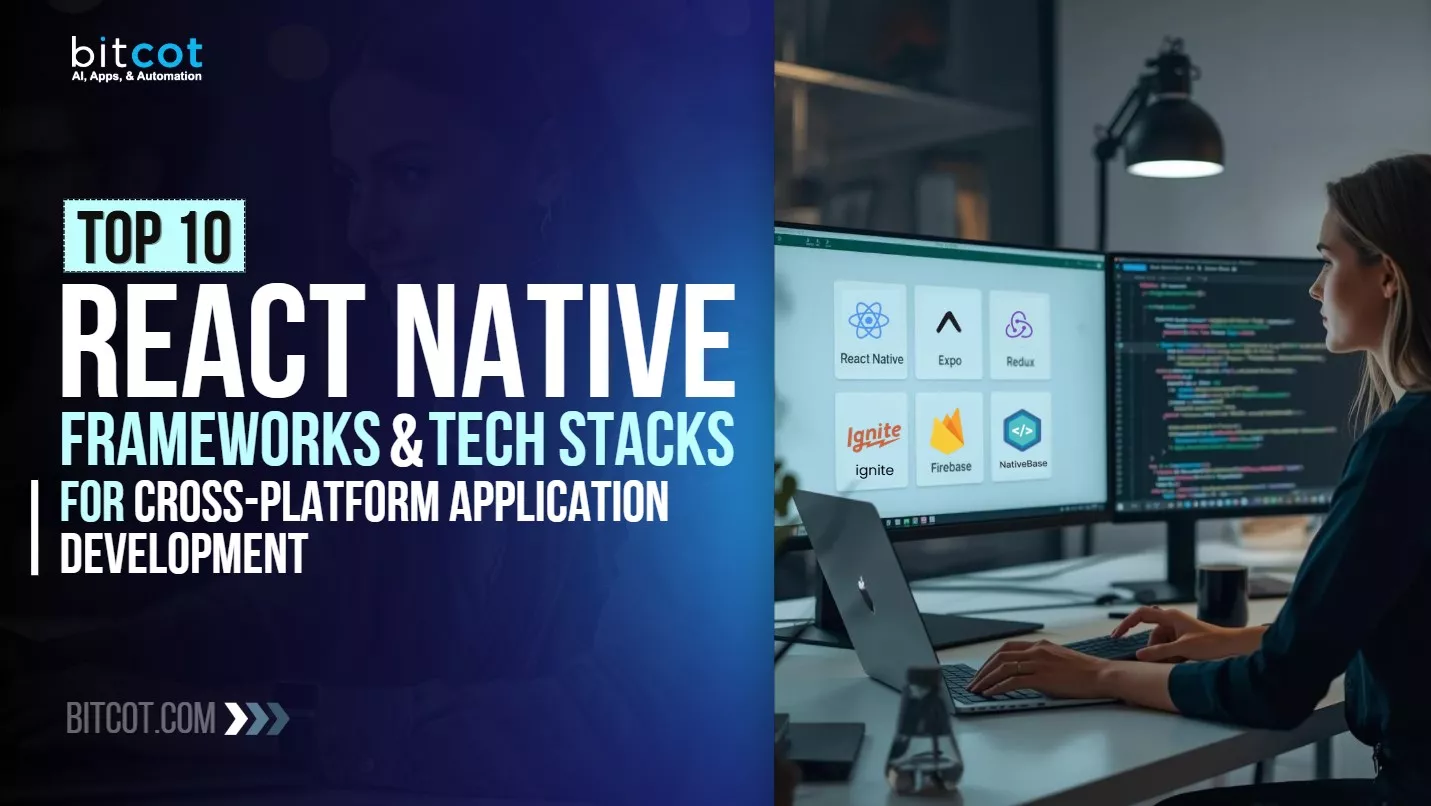
What if your entire business could fit in your pocket?
You can. Your smartphone is no longer just a phone. It’s your AI-powered command center.
As an entrepreneur in 2025, your smartphone has evolved beyond a simple communication device. It’s now an AI-powered command center for your entire business operation.
The productivity app market has experienced explosive growth, driven by remote work adoption, AI integration, and the need for seamless mobile-first solutions that work across hybrid environments.
Managing business operations, tracking tasks, collaborating with distributed teams, and optimizing workflows through intelligent automation can all be executed from your mobile device.
With the right productivity apps, you can leverage AI-driven insights, automate repetitive processes, and maintain peak efficiency while remaining mobile.
Whether you’re a CEO navigating multiple ventures, a business owner scaling operations, a startup founder bootstrapping growth, or a freelancer managing client projects, this comprehensive guide covers the 10 essential productivity mobile apps for 2025 that every entrepreneur should integrate into their workflow.
Additionally, if your business requires a custom mobile productivity solution with AI automation, machine learning capabilities, or specialized integrations tailored to your unique processes, we’ll explore how Bitcot (a leading mobile app development company) can architect the perfect solution for your enterprise.
Top 10 Best Productivity Apps for Entrepreneurs in 2025
Here’s an in-depth analysis of the best productivity apps for business owners that deliver AI-powered automation, intelligent task management, and seamless collaboration features optimized for mobile-first workflows.
1. Notion

Image Source: notion.com
Notion has emerged as the all-in-one workspace that combines notes, databases, project management, and AI-powered content generation for task management, collaboration, and knowledge management. Its mobile interface delivers desktop-level functionality, making it the preferred choice for entrepreneurs who need comprehensive workspace management on the go. In 2025, Notion’s AI capabilities have matured significantly, offering smart summaries, automated task extraction, and predictive content suggestions.
Key Features:
- Offline-first architecture for uninterrupted mobile productivity
- Advanced Kanban boards, database views, and calendar integrations
- Notion AI for instant summaries, content generation, and smart insights
- Real-time collaboration with commenting and @mentions
- Template marketplace for rapid workflow deployment
Available on: iOS & Android
Use Case: A SaaS founder can use Notion as their central operating system for tracking investor conversations, managing product roadmaps, and collaborating with remote teams across time zones.
2. Todoist

Image Source: todoist.com
Todoist has evolved into an AI-powered task management powerhouse that understands natural language, learns from your behavior patterns, and automatically prioritizes your workload through intelligent to-do list organization. The 2025 version includes predictive scheduling that analyzes your completion patterns and suggests optimal task timing, making it indispensable for entrepreneurs juggling multiple priorities.
Key Features:
- Mobile widgets for instant task capture without opening the app
- Voice command integration with Siri and Google Assistant
- AI-powered priority scoring that adapts to your work patterns
- Natural language processing for intuitive task entry
- Location-based and time-based smart reminders
Available on: iOS & Android
Use Case: A business owner managing three ventures can use Todoist’s AI to automatically organize tasks by priority, set smart reminders for client follow-ups, and maintain separate project boards.
3. Trello

Image Source: trello.com
Trello‘s mobile app provides visual project management and workflow automation through intuitive Kanban boards, now enhanced with Butler automation and AI-powered suggestions. The platform has become essential for entrepreneurs who need to visualize workflows, track progress, and coordinate team efforts from their mobile devices without sacrificing desktop functionality.
Key Features:
- Mobile-optimized drag-and-drop Kanban interface
- Butler automation for rule-based workflow triggers
- Offline functionality with intelligent sync when reconnected
- Power-Ups integration with 200+ tools including Slack and Google Drive
- Card templates for repeatable processes
Available on: iOS & Android
Use Case: A startup founder can create boards for different sprints, automate card movements, assign team members to tasks, and monitor progress through mobile notifications while traveling to investor meetings.
4. Slack

Image Source: slack.com
Slack remains the dominant force in business messaging, remote collaboration, and team coordination, with its 2025 mobile app delivering AI-powered message summaries, smart threading, and enhanced video capabilities. For distributed teams, Slack’s mobile app has become mission-critical, enabling real-time decision-making regardless of location.
Key Features:
- Instant team communication with channel-based organization
- AI-powered message summaries for catching up on missed conversations
- Priority notifications with intelligent filtering
- Native integration with 2,500+ business applications
- Huddles for instant voice and video collaboration
Available on: iOS & Android
Use Case: A CEO managing a remote team can use Slack’s mobile app to conduct quick huddles, receive priority notifications for urgent matters, and maintain asynchronous communication through threaded conversations.
5. Evernote

Image Source: evernote.com
Evernote has transformed into an AI-enhanced knowledge management system that captures, organizes, and retrieves business information with unprecedented speed. The 2025 version includes advanced AI search that understands context, handwritten note recognition, and automatic categorization based on content analysis.
Key Features:
- AI-powered semantic search that finds notes based on concepts
- Mobile camera scanning with OCR for receipts and documents
- Smart tagging and automatic categorization based on content
- Audio notes with transcription capabilities
- Cross-device sync with unlimited storage options
Available on: iOS & Android
Use Case: A consultant can capture meeting notes during client sessions, scan and digitize contracts using the mobile camera, and retrieve specific information instantly using AI search.
6. Zapier

Image Source: zapier.com
Zapier has revolutionized business automation, workflow integration, and process optimization, and the 2025 mobile app now enables entrepreneurs to create, monitor, and manage sophisticated automation workflows directly from their smartphones. With connections to over 6,000 applications, Zapier eliminates manual data entry and creates intelligent workflows that run 24/7.
Key Features:
- Create and edit Zaps (automation workflows) directly from mobile
- Pre-built templates for common business automation scenarios
- Multi-step Zaps with conditional logic and filtering
- Push notifications for automation triggers and errors
- Integration with 6,000+ business applications
Available on: iOS & Android
Use Case: A marketing agency owner can automate lead capture from Facebook ads into their CRM, trigger Slack notifications for new prospects, and generate weekly reports sent to Google Sheets.
7. Clockify

Image Source: clockify.me
Clockify has evolved into an intelligent time tracking and productivity analytics platform that helps entrepreneurs understand exactly where their time goes. The 2025 version includes AI-powered insights that identify productivity patterns, suggest time optimization strategies, and provide predictive project timeline estimates for billable hour management.
Key Features:
- One-tap time tracking with automatic categorization
- AI-powered productivity insights and pattern recognition
- Detailed reports analyzing time allocation across projects
- Pomodoro timer with customizable work/break intervals
- Billable rate calculations and invoice generation
Available on: iOS & Android
Use Case: A freelance consultant can track billable hours across multiple clients, receive AI insights showing their most productive hours, and generate professional invoices with detailed time breakdowns.
8. Google Keep

Image Source: pcmag.com
Google Keep delivers lightweight, fast note-taking with deep integration into the Google Workspace ecosystem for quick idea capture, voice notes, and lightweight task management. Its simplicity and speed make it ideal for quick capture, while AI-powered features like image text extraction and voice transcription make it surprisingly powerful for mobile-first entrepreneurs.
Key Features:
- Voice notes with automatic transcription
- Image capture with OCR text extraction
- Color-coded labels for visual organization
- Location-based and time-based reminders
- Seamless integration with Google Drive, Calendar, and Docs
Available on: iOS & Android
Use Case: An entrepreneur conducting market research can quickly capture competitor observations using voice notes, photograph whiteboards with automatic text extraction, and share findings instantly with team members.
9. Forest
 Image Source: makeuseof.com
Image Source: makeuseof.com
Forest addresses the critical challenge of smartphone distraction through gamification and positive reinforcement for focus enhancement and deep work sessions. In an era of constant notifications and attention fragmentation, Forest helps entrepreneurs maintain deep work sessions and build sustainable focus habits through its unique tree-growing mechanism.
Key Features:
- Virtual tree grows during focused work sessions
- Customizable focus timers with Pomodoro technique integration
- Statistical tracking of focus patterns over time
- Whitelist for essential apps during focus sessions
- Real-tree planting partnership with Trees for the Future
Available on: iOS & Android
Use Case: A CEO preparing quarterly board presentations can use Forest to block out 90-minute deep work sessions, eliminate social media distractions, and track focus time improvements over weeks.
10. Spark Mail

Image Source: sparkmailapp.com
Email remains a critical business tool, and Spark Mail has emerged as the intelligent email client for intelligent email management and team collaboration that entrepreneurs need in 2025. With AI-powered prioritization, smart replies, and team collaboration features, Spark transforms email from a time sink into a productivity asset that can be managed efficiently on mobile.
Key Features:
- Smart Inbox that automatically categorizes and prioritizes messages
- AI-powered email composition with tone and style suggestions
- Quick replies with context-aware response templates
- Snooze and send-later features for optimal timing
- Integration with productivity tools like Trello, Asana, and Todoist
Available on: iOS & Android
Use Case: A venture-backed founder can use Spark to automatically surface urgent investor communications, collaborate with their executive team on partnership discussions, and maintain inbox zero efficiently.
Productivity Apps Comparison Table
Quick comparison of features, pricing, and capabilities to help you choose the right productivity app for your business needs:
| App | Best For | Starting Price | AI Features | Offline Mode | Team Size |
| Notion | All-in-one workspace | $10/month | Yes | Yes | Solo to Enterprise |
| Todoist | Task management | $4/month | Yes | Yes | Solo to Small Teams |
| Trello | Visual projects | $5/month | Limited | Yes | Small to Large Teams |
| Slack | Team communication | $7.25/month | Yes | Limited | Small to Enterprise |
| Evernote | Note-taking | $10.83/month | Yes | Yes | Solo to Teams |
| Zapier | Automation | $19.99/month | Limited | No | Solo to Enterprise |
| Clockify | Time tracking | Free | Yes | Limited | Solo to Teams |
| Google Keep | Quick notes | Free | Limited | Yes | Solo to Small Teams |
| Forest | Focus/blocking | $3.99 one-time | No | Yes | Solo |
| Spark Mail | Email management | $7.99/month | Yes | Yes | Solo to Teams |
Use this comparison to identify which apps align with your budget, required features, and team size for optimal productivity.
How to Choose the Right Productivity App for Your Business
Selecting the right productivity app depends on your business size, integration needs, and automation requirements. Here’s a quick framework to help you decide:
1. Match the App to Your Business Size
Different business stages require different tools. Here’s what works best for each level:
- Solopreneurs & Freelancers: Todoist, Evernote, Clockify, Forest
- Small Teams (5-20 people): Slack, Trello, Notion, Google Keep
- Growing Businesses (20-100 people): Notion, Zapier, Spark Mail, Clockify
- Enterprise (100+ people): Slack, Notion, Zapier, or custom solutions by Bitcot
2. Prioritize Integration Capabilities
Choose apps that connect seamlessly with your existing tools:
- Trello, Slack, and Notion offer native integrations with major platforms
- Zapier connects 6,000+ apps for workflow automation
- Google Keep integrates with Google Workspace
- Ensure real-time sync across mobile and desktop
3. Look for AI and Automation Features
The best productivity apps in 2025 include:
- AI-powered task prioritization (Notion AI, Todoist)
- Workflow automation (Zapier)
- Smart email management (Spark Mail)
- Productivity analytics (Clockify)
4. Start Free, Scale as You Grow
Test apps with free plans before investing in premium features. Here’s the smart progression path:
- Free Tier: Begin with Trello, Clockify, Google Keep, and Forest to test functionality
- Paid Plans: Upgrade to Slack, Notion, Todoist, and Zapier as your team expands
- Custom Solutions: Partner with Bitcot when you need specialized features or integrations
5. Ensure Mobile-First Performance
Verify the app offers:
- Offline functionality
- Mobile-specific features (camera, voice, location)
- Fast performance on various devices
- Native mobile experience
Need help choosing the right productivity stack? Contact Bitcot for expert consultation or custom app development.
AI and Automation in Productivity Apps: 2025 Trends
The productivity app landscape has undergone significant transformation, driven by AI and automation technology. Here are the key trends shaping productivity in 2025:
1. Conversational AI Assistants Embedded in Workflows
AI assistants have evolved to become proactive workflow participants that understand context and take autonomous action:
- Predictive Scheduling: AI analyzes your calendar and work patterns to suggest optimal meeting times and reschedule conflicts
- Intelligent Summarization: Automatically generate meeting notes, email summaries, and project updates
- Contextual Recommendations: Apps suggest next actions based on project status and deadlines
2. Predictive Task Management and Smart Prioritization
Task management has shifted to AI-driven intelligent prioritization:
- Apps like Todoist and Notion AI automatically rank tasks based on deadlines and completion patterns
- Intelligent systems detect capacity constraints and suggest workload adjustments
- AI estimates time requirements based on historical data
3. No-Code Automation Platforms
Automation is now accessible to everyone through no-code platforms:
- Zapier’s mobile app allows entrepreneurs to create automation workflows without coding
- Business events automatically trigger workflows across multiple applications
- Pre-built templates provide ready-made automation for common scenarios
4. AI-Powered Time Intelligence and Productivity Analytics
Time tracking has evolved into predictive productivity optimization:
- Apps like Clockify use AI to automatically categorize activities
- Real-time monitoring identifies distraction patterns
- Systems suggest schedule optimizations based on productivity data
5. Intelligent Communication and Email Management
Communication tools now manage information overload intelligently:
- Email apps like Spark use machine learning to prioritize urgent messages
- AI generates contextually appropriate email responses
- Long threads are automatically condensed into key points and action items
6. Collaborative AI for Team Productivity
AI transforms how teams work together:
- Real-time transcription with automatic action item extraction
- AI summarizes discussion threads and highlights consensus
- Systems provide managers with insights into team capacity and project health
7. Mobile-First AI Architecture
2025 productivity apps are built with mobile-native AI capabilities:
- Advanced features work offline through on-device machine learning
- Voice commands enable hands-free mobile productivity
- Mobile cameras scan documents and extract text
- Location-aware automation triggers context-sensitive workflows
AI and automation enable businesses to eliminate routine work, accelerate decision-making, and focus on high-value activities.
Final Thoughts
The right combination of productivity mobile apps can fundamentally transform how entrepreneurs work, enabling smarter task management, enhanced team coordination, and operational efficiency regardless of location. The shift to mobile-first, AI-powered productivity tools represents not just incremental improvement but a paradigm shift in business operations.
Whether your priorities are comprehensive task management (Trello, Notion), intelligent automation (Zapier), focus enhancement (Forest), time optimization (Clockify), or communication efficiency (Slack, Spark Mail), these applications can revolutionize your daily business operations and competitive positioning.
Why Consider a Custom Productivity App?
While off-the-shelf productivity apps serve most business needs effectively, certain scenarios warrant custom development:
When Custom Solutions Make Sense:
- Your industry has unique workflow requirements not addressed by generic tools
- You need proprietary features that provide competitive differentiation
- Compliance or security requirements prevent using shared SaaS platforms
- Integration complexity across legacy systems exceeds the capabilities of automation platforms
- Your business model depends on productivity workflows as a core value proposition
Bitcot Custom Development Capabilities:
For businesses requiring bespoke mobile productivity applications tailored to unique workflows, Bitcot specializes in building powerful, AI-integrated automation solutions for entrepreneurs, startups, and enterprise organizations.
Custom Development Services:
- Create personalized task management systems aligned with your specific business processes
- Develop AI-powered productivity features including predictive analytics and intelligent automation
- Integrate seamlessly with existing tools, databases, and enterprise systems
- Build scalable and secure mobile applications with enterprise-grade infrastructure
- Implement advanced features like machine learning models, natural language processing, and computer vision
- Provide ongoing support, iteration, and feature enhancement as your business evolves
Want to build a custom mobile productivity app that gives your business a competitive advantage? Let’s talk about your specific requirements and explore how Bitcot can architect a solution that transforms your business operations.
Frequently Asked Questions About Productivity Apps
Notion is widely considered the best all-in-one productivity app for entrepreneurs due to its comprehensive workspace features, AI capabilities, and flexibility for both individual and team use. However, the “best” app depends on your specific needs, Todoist excels for task management, while Slack is unmatched for team communication. Notion, Todoist, Trello, Evernote, Google Keep, and Forest all offer offline functionality. This is crucial for entrepreneurs who travel frequently or work in areas with unreliable internet connectivity. Always verify offline capabilities meet your specific needs. Zapier is the best solution for integrating multiple apps without coding. It connects 6,000+ applications and automates workflows between them. Alternatively, many apps offer native integrations, check each app’s integration directory before committing to a productivity stack. All top productivity apps now incorporate AI features. Notion AI and Todoist offer predictive task management, Spark Mail uses AI for email prioritization, Evernote has semantic search, and Clockify provides AI-powered productivity insights. AI integration has become standard rather than exceptional. Budget $20-50/month for solopreneurs, $100-300/month for small teams (5-10 people), and $500-2,000/month for growing businesses (20-50 people). Start with free plans and upgrade based on ROI. Enterprise pricing varies significantly based on user count and custom requirements. For small teams and simple projects, yes. Notion and Trello can handle most project management needs. However, larger teams with complex projects may need dedicated project management platforms like Asana, Monday.com, or Jira for advanced features like resource allocation, Gantt charts, and portfolio management. Slack is the leading choice for remote team collaboration, offering real-time messaging, video huddles, and 2,500+ integrations. For combined project management and collaboration, Notion provides an excellent all-in-one solution. Most successful remote teams use a combination of communication (Slack) and workspace (Notion/Trello) tools. Studies show productivity apps can improve efficiency by 20-40% when properly implemented. Key benefits include reduced context switching, automated workflows, better task prioritization, and improved team coordination. Success depends on choosing the right apps, proper onboarding, and consistent usage habits. Choose apps with enterprise-grade security: end-to-end encryption, SOC 2 compliance, two-factor authentication, and GDPR compliance. Review each app’s security documentation, enable all available security features, implement access controls, and conduct regular security audits. For highly sensitive data, consider self-hosted or custom solutions. Task management apps (like Todoist) focus on individual to-do lists, priorities, and personal productivity. Project management apps (like Trello) coordinate team workflows, track project progress, and manage resources across multiple tasks. Many entrepreneurs need both: task management for personal work and project management for team coordination. Most entrepreneurs benefit from a curated app stack (3-5 core apps) rather than relying on a single app. A typical stack includes: one workspace/project tool (Notion/Trello), one communication tool (Slack), one task manager (Todoist), and one automation tool (Zapier). Avoid app overload – more apps don’t necessarily mean more productivity.
What is the #1 productivity app for entrepreneurs in 2025?
Which productivity apps work offline?
How do I integrate multiple productivity apps together?
What productivity apps use AI features in 2025?
How much should I budget for productivity apps monthly?
Can productivity apps replace dedicated project management software?
Which app is best for remote team collaboration?
Do productivity apps actually improve business efficiency?
How do I protect sensitive business data in productivity apps?
What's the difference between task management and project management apps?
Should I use one app or build a multi-app productivity stack?












